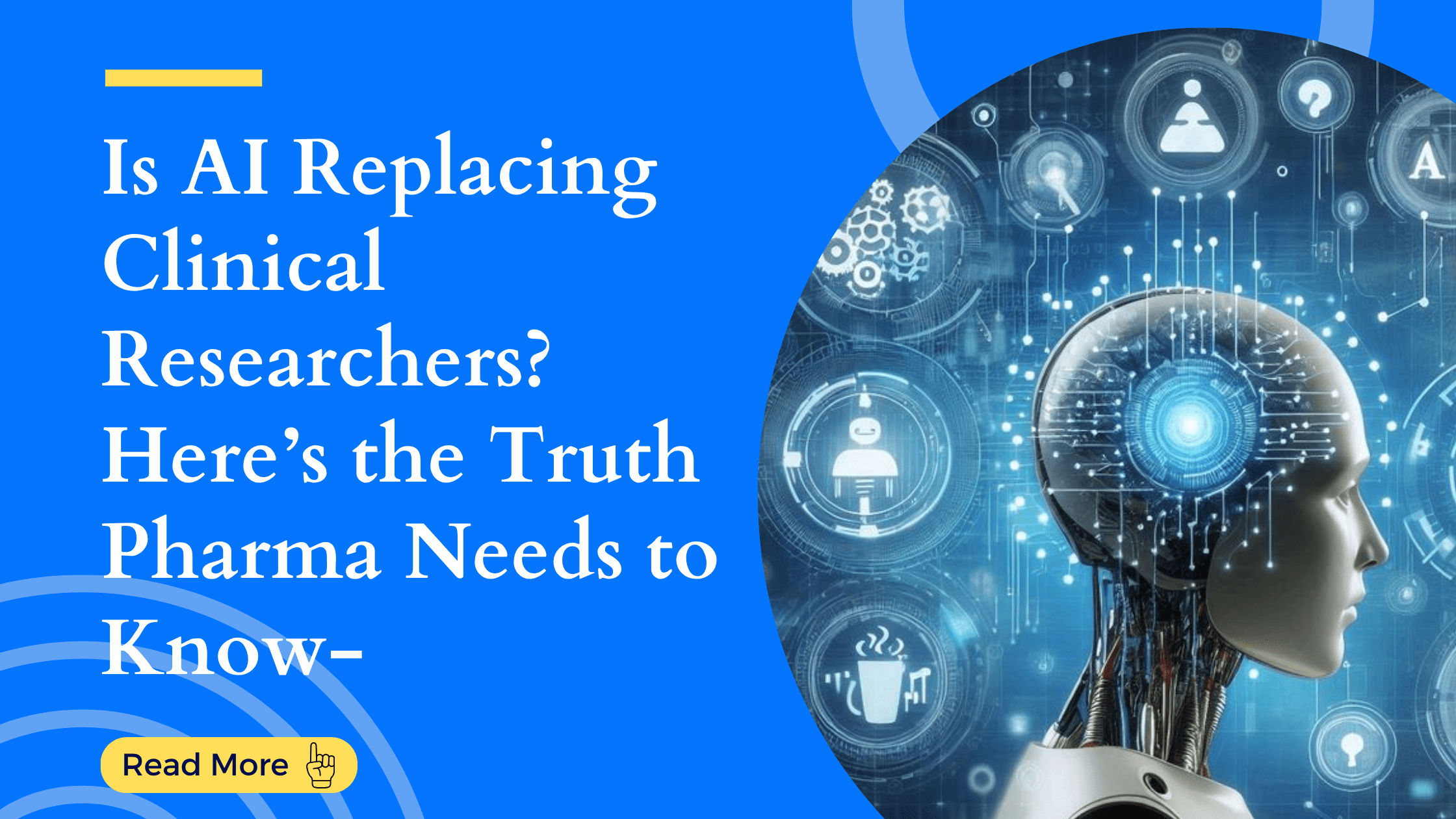Is AI Replacing Clinical Researchers? Insights from a Leading Clinical Research Organization in India
Is AI Replacing Clinical Researchers? Here’s the Truth Pharma Needs to Know
The AI Revolution in Clinical Research We live in a world where technology evolves rapidly. Artificial intelligence (AI) is transforming industries across the globe—and clinical research is no exception. From automating repetitive tasks to extracting insights from complex datasets, AI is making clinical trials smarter, faster, and more efficient.
But is AI replacing clinical researchers? Let’s explore the truth that pharmaceutical companies need to know.
AI in Clinical Trials: A Powerful Partner, Not a Replacement
AI is proving to be a valuable ally for Clinical Research Organizations (CROs). When paired with human expertise, AI tools can enhance trial design, minimize errors, accelerate patient recruitment, and improve participant targeting.
At Abiogenesis Clinpharm, a leading Clinical Research Organization in India, we believe the future lies in human + AI synergy—not substitution.
AI in Medicine: The Origin Story
In the early 1970s, MYCIN, an AI-based expert system developed at Stanford University, was designed to diagnose bacterial infections like meningitis and bacteraemia and recommend personalized antibiotic treatments. It worked by asking physicians a series of questions and then providing diagnoses with confidence levels, along with suggested treatments. Although never used in actual clinical practice due to legal and ethical concerns, MYCIN was a groundbreaking innovation that laid the foundation for the use of AI in modern medicine and clinical research.
Learn More About : https://cdscoonline.gov.in/CDSCO/homepage
The Expanding Role of AI in Clinical Trials
Today, CROs leverage AI and machine learning to improve trial operations. Here’s how AI is transforming clinical development:
Predicting patient recruitment success using real-world data and behavioral trends
Identifying high-performing trial sites using historical performance metrics
Automating data entry and cleaning to reduce human error
Monitoring patient compliance through digital tools and wearables
Processing unstructured data such as clinical notes and lab reports with accuracy and speed
These tools are reshaping the operational landscape, but AI still cannot replicate human judgment or empathy.
Why Clinical Researchers Are Still Irreplaceable ?
Clinical trials require more than data management—they demand deep expertise, cultural understanding, and ethical judgment. Here’s where human researchers excel:
Making complex clinical decisions based on individual patient needs
Navigating ethical dilemmas with emotional intelligence
Building patient trust and engagement through communication
Adapting to unforeseen challenges and protocol deviations on-site
Clinical researchers remain at the heart of every successful trial.
➤ Learn more about our clinical research capabilities on our About Us page.
The Power of Human-AI Collaboration: A Strategic Advantage
Smarter Patient Recruitment
AI scans EHRs, social media, and registries to identify eligible patients. Researchers ensure ethical recruitment and clear communication.Adaptive Trial Design
AI models simulate trial outcomes. Researchers use these to select optimal trial designs and pivot when necessary.Enhanced Risk-Based Monitoring (RBM)
AI detects anomalies early. Human monitors investigate and ensure regulatory compliance.Streamlined Regulatory Documentation
NLP tools draft reports. Human professionals refine them to meet evolving regulatory standards.Looking Ahead: Building a Tech-Human Ecosystem
Rather than viewing AI as competition, clinical researchers should embrace it as a collaborator. CROs that combine human expertise with AI innovation are better equipped to meet the growing demands of pharmaceutical sponsors.
Today’s pharma clients are seeking more than service providers. They want adaptable, technology-driven partners who deliver results without compromising quality or ethics. This is where human-AI synergy becomes a game changer.
Final Thoughts So, is AI replacing clinical researchers? No—and it shouldn’t.
Here’s the truth: AI isn’t here to replace people, it’s here to support them.
The future of clinical trials lies not in choosing between humans and technology, but in empowering both. AI brings speed, scale, and consistency. Researchers bring insight, empathy, and adaptability. Together, they are reshaping how we bring life-changing therapies to patients.
AI is the engine. Clinical researchers are the drivers. Together, they are the future of clinical research.
Conclusion: Why Choose Abiogenesis Clinpharm?
At Abiogenesis Clinpharm, we believe that true innovation lies in harmony between human intelligence and emerging technologies. As a leading full-service CRO based in Hyderabad, India, we combine scientific expertise, regulatory excellence, and every phase of clinical development—from Phase I to Phase IV.
Let’s work together to redefine what’s possible in clinical research.
👉Contact: [email protected] to learn more about how Abiogenesis Clinpharm can support your current or upcoming trial.



